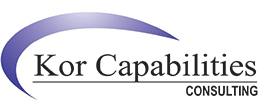So much of the personal and professional development literature we read advise us to do “more of” certain things. “Be more assertive.” “Just say no.” “Take initiative and be independent.” “Be more empathetic and flexible”.
For some people these may be wise words and exactly what they need to do. For others, they may have assertiveness, independence, empathy and flexibility in abundance. Demonstrating more of these characteristics may not be the right thing to do depending on the circumstance. Overplayed strengths can become weaknesses if we rely on them too heavily and too frequently.
For example, if you are a manager and rate high in assertiveness you may take pride in speaking your mind and being clear about what you want. If overplayed however, staff may be discouraged to speak up in meetings or express a different point of view.
What if you are also high on independence but are expected to delegate work, coach and support others to do the work rather than doing it yourself? That would actually require you to tone down those very strengths you have learned to develop.
Empathy is another characteristic that most people would say is a wonderful trait. Sometimes if we are too empathetic, we may have trouble giving difficult feedback, correcting employee performance or making tough decisions. We may shy away from conflict to keep the peace however employee engagement studies consistently show that being too soft on sub-standard performance will demoralize other staff and eventually cause disengagement- especially of our highest performers.
Who wouldn’t want to work for someone who is really flexible? Well too much flexibility can be seen as “wishy-washy”, not being able to take a stand or changing direction in mid-stride when key decisions have already been made, creating frustration and paralysis.
The key of course is self-awareness and recognizing what we have to dial up or down depending on the situation. The feedback we receive from others, their words, body language and actions are all clues to letting us know how we land on people and using that information wisely to temper our behavior- sometimes the very strengths we’ve relied on to getting us where we are today.
It is absolutely important to know how our natural tendencies and strengths can bring out the best of who we are so we can continue to fine tune them in service of others and our chosen vocations.
So the question about our personal and professional development shouldn’t just be, “What should I do more of?” but also, “What should I do less of?” And the answer to both of course is, “It depends”.

